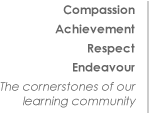
Imberhorne Mark Holocaust Memorial Day
Don't Stand By
In November last year, we visited Auschwitz-Birkenau, the infamous concentration and death camp in Poland that was in use during WW2 – 70 years ago. This week, people across the world remembered the genocide during Holocaust Memorial Day, but, the Holocaust is not only a historical event, but something that has repercussions and lessons for us in the modern day.
Many people, over the years since, have said “never again”. Everybody today recognises the significance of the Holocaust, the sheer number of people systematically murdered had never been seen before or, thankfully, since. But there is always the question of “how did the Holocaust arise?” Naturally, it is easy to attribute the event to Adolf Hitler and the Nazi Party, but, whilst this is mostly true, it is the actions of the public, ordinary people, that also had a hand to play. This is how the Holocaust can teach us such profound lessons today. For it is the actions of us, the ordinary people, that can help ensure that an event like this never occurs again.
In 21st century Britain, we find ourselves in a complicated web of international crises, which are fuelling controversial public and political opinions on both sides of the Atlantic and in Europe. Journalists, columnists and politicians are regularly voicing racist and prejudiced comments, and the media is in danger of indoctrinating some in the UK to support their agenda. One thing that the Holocaust has taught us, in a broad sense, is the idea that we shouldn’t “stand by”. This is the theme for the 2016 Holocaust Memorial Day – don’t stand by. In the 40s, victims were taken to the camps on board trains. But who drove these trains? The train drivers were not forced to carry out this task: and they could easy have said no and continued with their usual tasks. And, if every train driver had said no, would this not have caused a break-down in the system? It would probably not have prevented the Holocaust, but it could have caused a delay, and saved lives. The lesson here is, that if we speak up, we can challenge what is wrong and prevent discrimination.
In a wider sense, Auschwitz thus teaches us to challenge acts of prejudice or discrimination, in wider society and in our local communities, even if unpopular or inconvenient. We must also promote tolerance of others by recognising the role every member plays in the town, or at a national level. It is also important that we increasingly learn not to take the media at face value – critically challenge and evaluate what you read and watch. We must learn to say “I disagree” with what we are exposed to – by accepting intolerance it will grow, just like it did in the 30s before WW2.
We are very lucky today to live in a democracy. We can be involved in the democratic process of the UK and we should exercise this, because we need to ensure that we influence the government’s role in global events. It must not be forgotten the Nazis started out life as an ordinary political party but, because they were not held to account by the public, they worked their way into a position of ultimate power. By making sure we engage in our democracy, we keep it as a democracy, and keep it free and fair for the generations that come after us.
Today, we view the Holocaust as one of the darkest periods of human history. Whilst it is central that we do not forget those who were murdered, it is of the utmost importance too that we learn from history; so that from the victims’ deaths there is hope for the future. After all, George Santayana once said; “those who do not remember the past are condemned to repeat it”.
By Henry Grub and Niamh Herrett, Year 13

